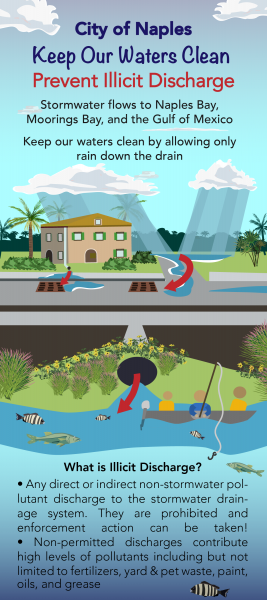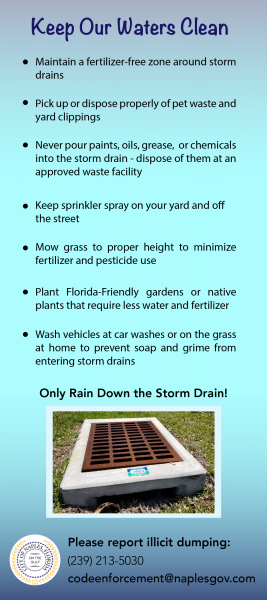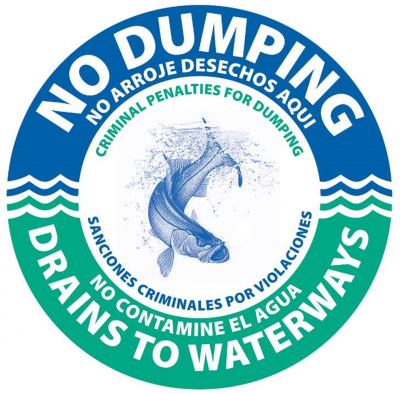Water Pollution Prevention
Storm sewers drain to the bays and Gulf!
What can I do to reduce water pollution?
In the house:
- Don't throw paints, oils or other forms of litter down the drain
- Dispose of prescription medicine at a disposal site - don’t flush them down the toilet!
- Take your household hazardous waste, such as pesticides, motor oil or other automotive fluids, to a hazardous materials collection center – storm sewers drain to the bays and Gulf!
- Use the minimum amount of detergent and/or bleach when you are washing clothes or dishes. Use only phosphate-free soaps and detergents
On the canal or lake edge:
- Plant the edge of your lake to create a vegetated littoral zone and plant an upland fertilizer-free zone
- Fertilize carefully – avoid fertilizing within ten feet of waterbodies or wetlands
- Avoid use of copper-based herbicides – Naples Bay is considered polluted for copper by the FDEP and EPA
In the yard and neighborhood:
- Minimize the use of pesticides, herbicides, and fertilizers. DO NOT dispose of these chemicals, motor oil, or other automotive fluids into the sanitary sewer or storm sewer systems. They end up in our bays and Gulf waters!
- Grass clippings – blow/sweep back onto the grass or collect and mulch. Keep off pathways and out of storm drains as they contain nutrients that can lead to poor water quality
- Scoop the poop! Pet waste left on the ground can be washed by rain into the storm sewers that lead to the bays and Gulf
- Illicit discharge is illegal. Check out our Pollution Prevention page for more information. If you see something, say something!
- Create a swale to help reduce stormwater runoff or plant a rain garden


Steps for creating a rain garden:
- Find a naturally low spot in the landscape or at the bottom of downspouts
- Determine the location of the garden and allow enough depth to make a depression that captures water (6-12 inches)
- Select Florida native plants that will survive during the dry seasons and will soak up excess rain during the wet seasons
- Place selected plants around rain garden and maintain regular upkeep
More information:
Neighborhood Guide to Stormwater Systems

